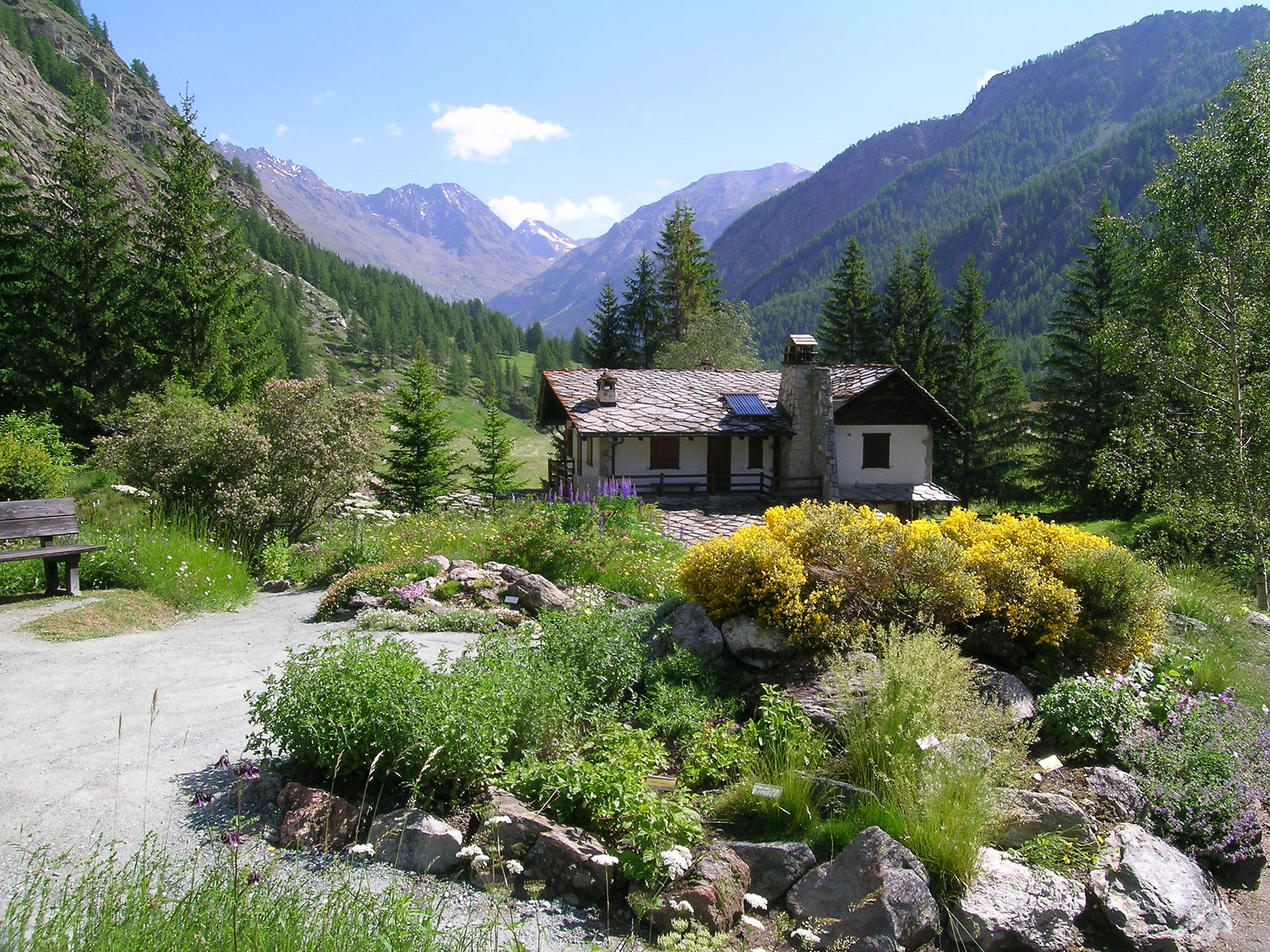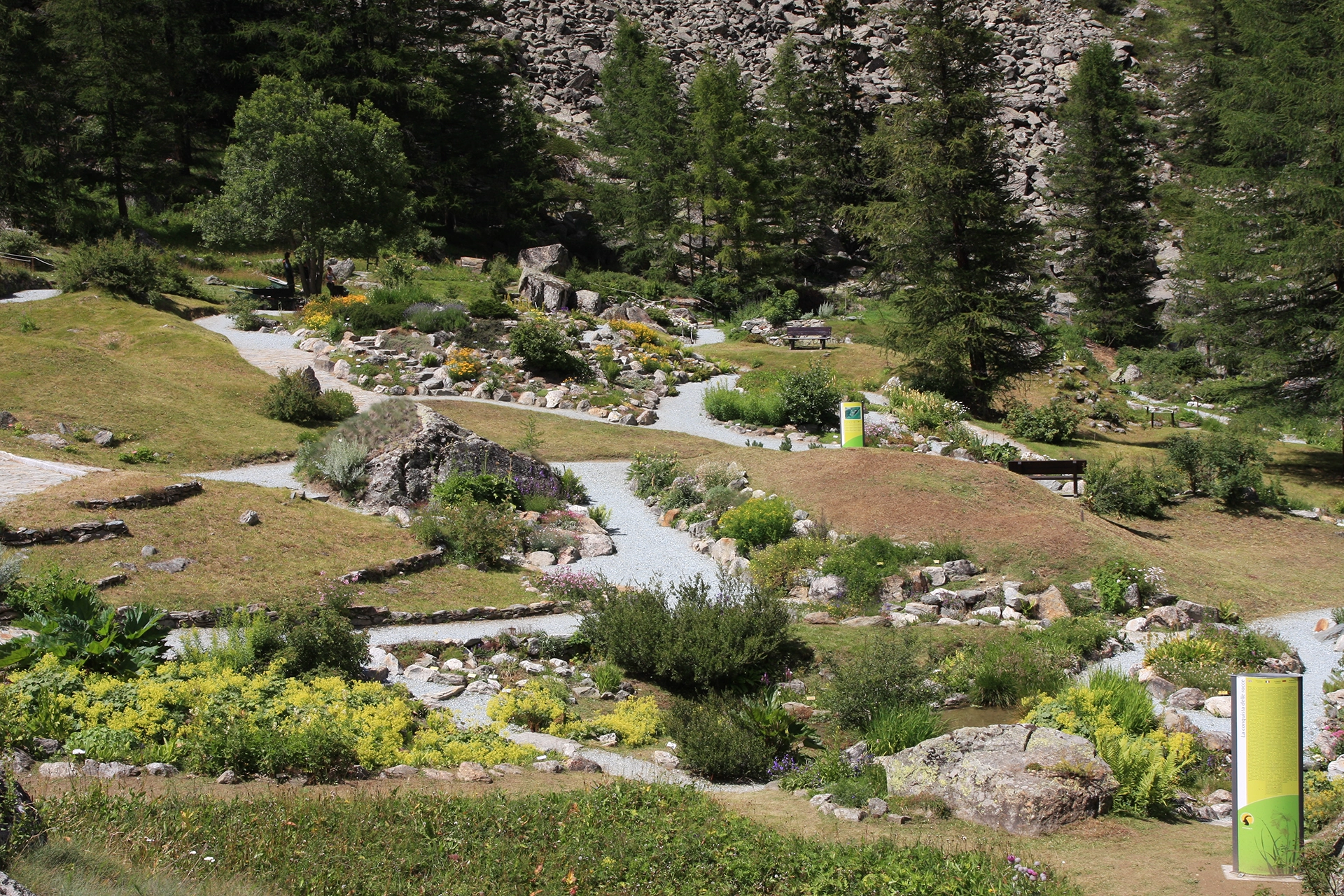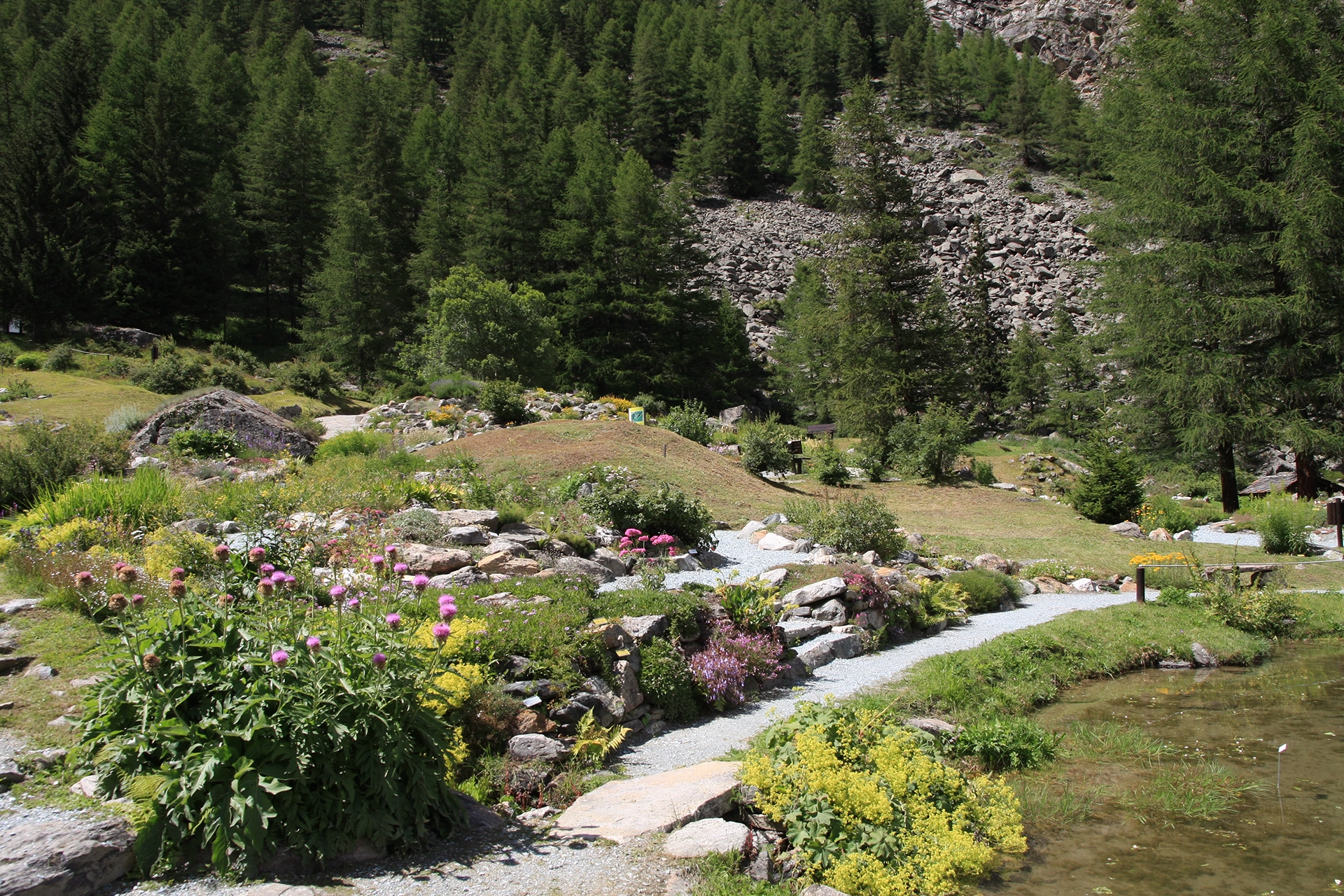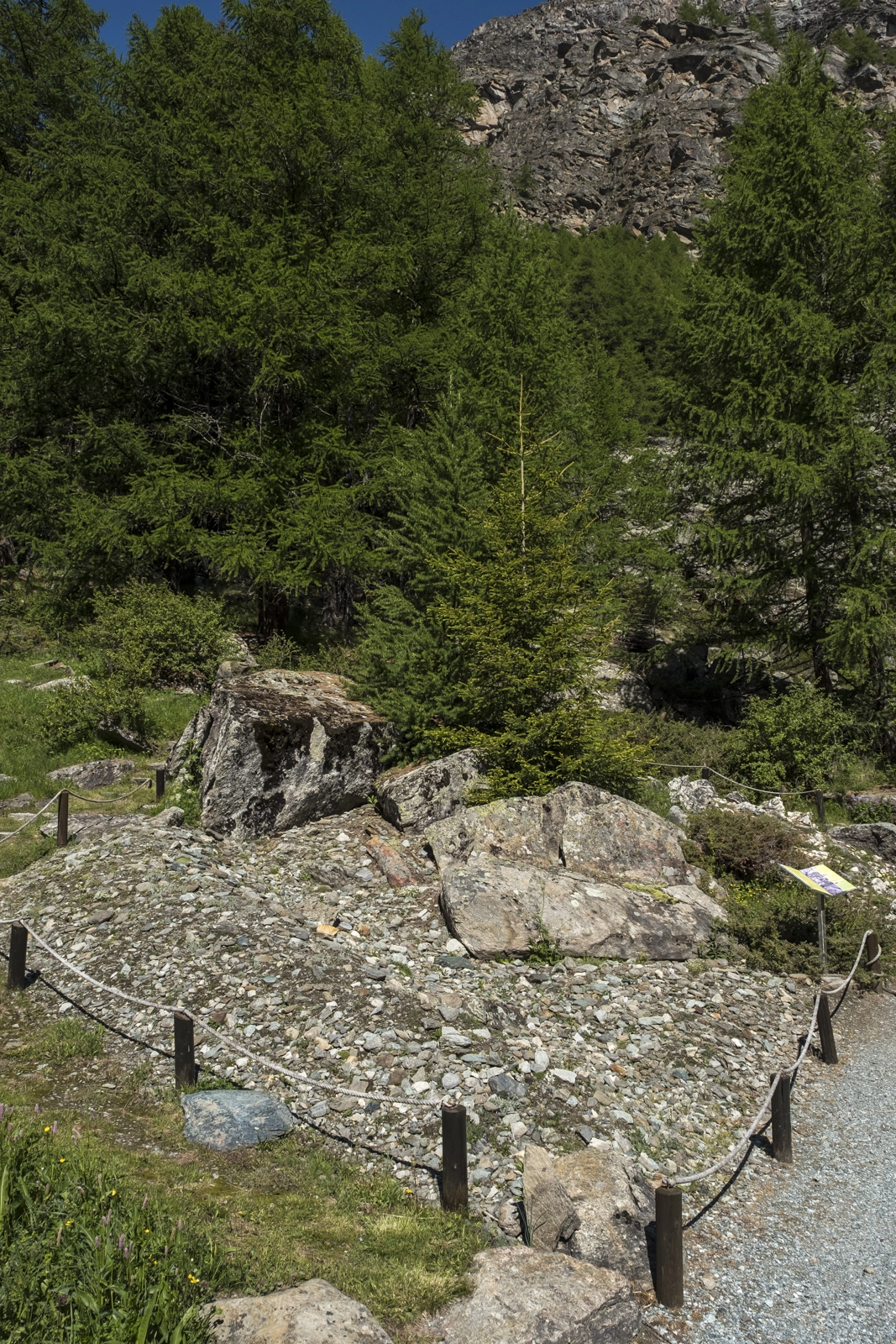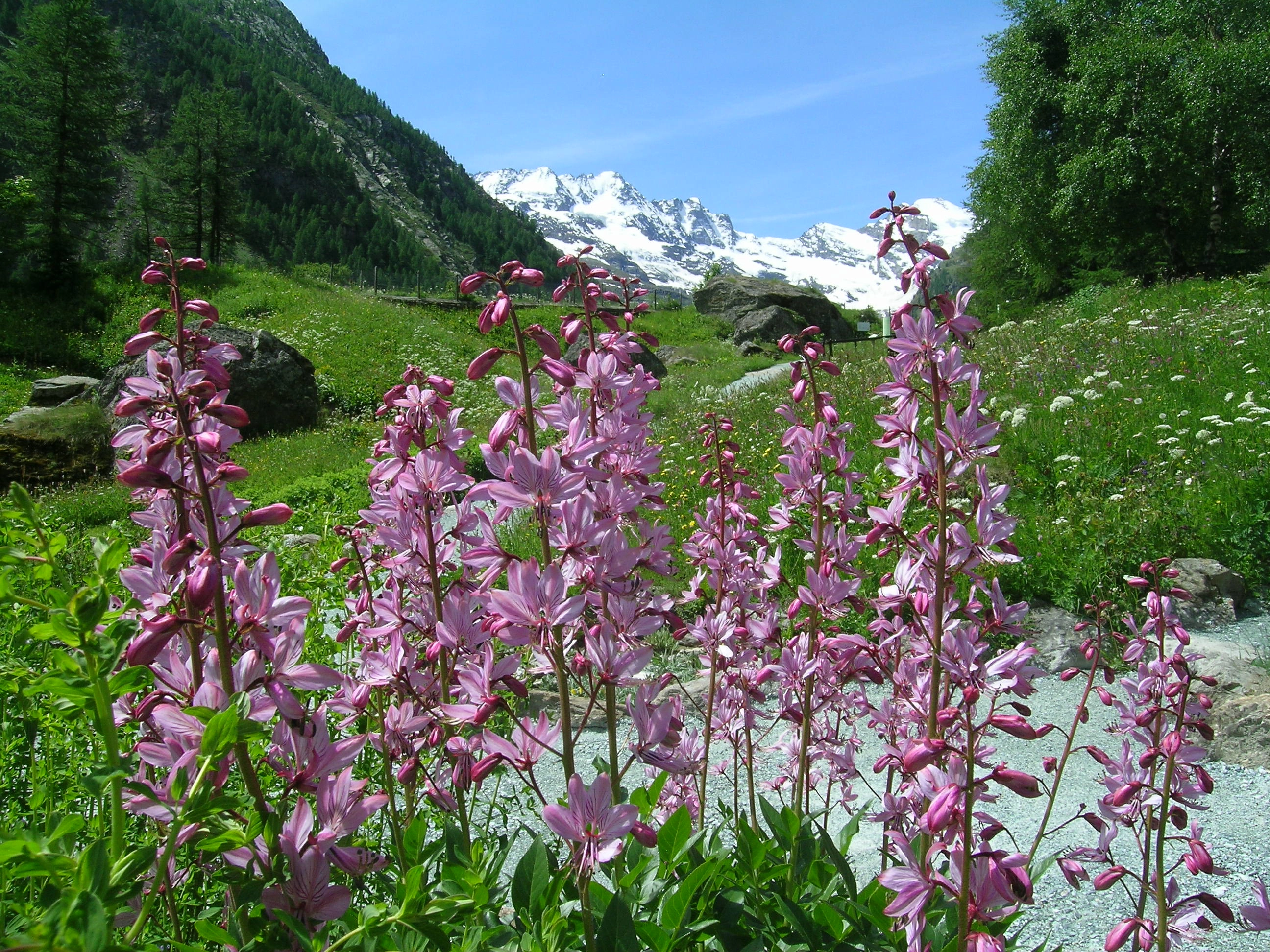What is an Alpine Botanical Garden?
An alpine botanical garden is a place where, depending on the altitude at which it is located, species of flora of the mountain, subalpine, alpine and nival altitudinal zones are hosted. According to F. M. Raimondo (1992), it is a place which houses \"live collections of plants for scientific and educational purposes, organised according to systematic, biological, geographical and ecological criteria\". While very much along the same lines, the botanical garden focuses heavily on aesthetic aspects and landscape.
How an alpine garden is set up varies depending on the purposes being prioritised. In most cases and especially in more established gardens, the “traditional\" set up prevails where the plant collections are grown in rockeries, with particular focus on the aesthetic component of the blooms or plants are arranged according to their geographical origin.
Another approach, which could be defined as \"modern\", is one in which only flora that is native to the area where the garden is located is presented, with the exclusion of other Italian and above all, exotic species: this is of considerable scientific interest, but often proves difficult for \"non-experts\" to understand and partly limits the educational-awareness raising purpose.
In recent years, the public\'s increased interest in ecology and the natural environment has meant that in many Alpine gardens, including Paradisia, the concepts of vegetation and habitat have also been dealt with by reconstructing the natural environments and plant associations that populate them. Taking into account the aims of Alpine gardens, this kind of \"intermediate\" approach could be the perfect compromise. Without considering that, precisely because of the heterogeneity of visitors, they can become places where different themes, still linked to the plant world, can be presented - geomorphology, soil colonization, pollination, climate change - thus contributing even more comprehensively to the dissemination of correct and balanced awareness of the importance of nature.
